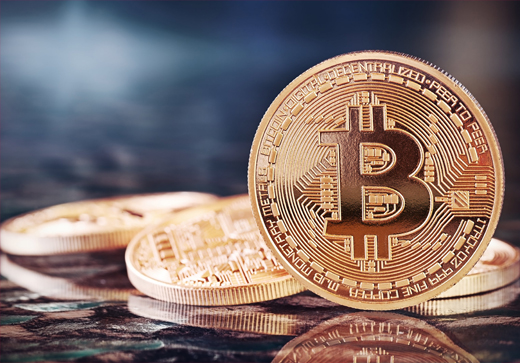The Great Bitcoin Debate In Six Points

Last Friday PYMNTS ran a short article by me that made the pretty simple and accurate point that Overstock.com receives dollars when people use their Coinbase wallet to send bitcoins. Little did I know the firestorm I would start. Patrick Byrne, Overstock’s CEO, was not happy with me as evidence by his post here on deepcapture.com not to mention his tweet bombs. I wrote a short elaboration which seems to have gotten a number of people even more riled up. Here are six follow-up points just to continue the “dialogue” over bitcoin’s efforts to become a currency or payment system or whatever.
1) As I mentioned in the initial piece one merely has to state how this process works with Coinbase and similar wallets to see that it does not make any economic sense. Person takes $ from their bank account; gives it to the wallet provider; wallet provider uses the $ to buy BTC for the wallet; the person then wants to buy something for $; the wallet provider then sells the BTC for $; and the wallet provider pays the seller in $. The stutter step of buying and selling BTC simply introduces inefficiency and friction into the exchange. And the consumer bears risks. This is a fundamental point.
2) It does not make any sense as a general matter for consumers to use wallets like Coinbase to buy from domestic merchants like Overstock. The consumer transfers dollars from their bank account to their wallet. Between the time they transfer dollars and the time they use their bitcoins to pay they incur exchange risk in addition to any fees they pay the wallet provider. If they go buy something from Overstock they could pay with PayPal or any other payment method for free, probably get various protections against the merchant, and possibly get rewards. See Ben Edelman’s piece here for a great exposition of this point. These wallets make a lot of sense for early adopters who want to support bitcoin for a variety of reasons or for exchanging bitcoins with other early adopters. But they don’t make sense for most consumers. They therefore probably won’t play a significant role in igniting bitcoin as a general purpose currency or bitcoin as general purpose payment system. This is another important point and the one bitcoin backers would be well advised to worry about.
3) Coinbase and the other wallet providers are a good deal for the merchant. Coinbase is currently charging a processing fee of 1 percent and only after the merchant has exceeded $1 million in sales. Putting the inefficiencies of dealing with small payment schemes aside, this is a good deal for the merchant. What’s surprising so far is that Overstock and the other merchants don’t seem to be giving people rewards for paying this way. Whether Coinbase can make money with this fee structure also remains to be seen.
4) If Overstock and other merchants actually took possession of bitcoins rather than dollars, that could increase the odds that bitcoin could be ignited as a general purpose currency. Here’s how it would work. Overstock would get bitcoins. It would use the bitcoins to pay suppliers. Those suppliers would either exchange them or possibly use them to pay other suppliers. This would set up a virtuous circle and get bitcoins in widespread circulation and use. That is in fact how currencies get established. The fact that that is not happening for bitcoin is a huge problem for it.
5) Mr. Byrne claims that his suppliers won’t take bitcoin. I don’t accept that. One of the things we know in B2B payments is that buyers, especially large ones, pretty much dictate how suppliers, especially small ones, are going to get paid. If Overstock told some of its smaller suppliers that they could either get paid in bitcoin, or go pound sand, my guess is they would take bitcoins. The total value of Overstock’s revenues based on bitcoin-related transactions is still trivially small so there’s no obvious reason why Overstock couldn’t use 100 percent of that revenue to pay suppliers. So I think the more plausible explanation is that Overstock really doesn’t want much in the way of bitcoins on its books.
6) Fortunately, we’re not going to have to wait very long to find out whether my views on the likely ignition of bitcoin are correct or not. We’ll see from the data whether bitcoin transactions accelerate. They have been pretty flat for many months. My conjecture is that the fact that merchants really don’t really accept bitcoin as a currency is a big deal and that bitcoin transactions won’t get into a phase of explosive growth partly as a result of that. So ultimately this isn’t a philosophical debate. We will learn whether bitcoin goes into a phase of explosive growth as a transaction mechanism or whether it doesn’t.
I’d like to thank Dr. Byrne for his comments. Healthy debate is always good and I’m looking forward to hearing more from Overstock’s CEO and a big bitcoin proponent. So stay tuned.
